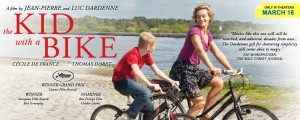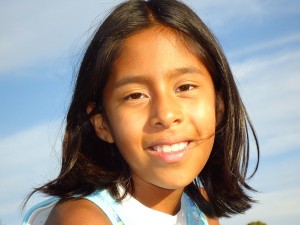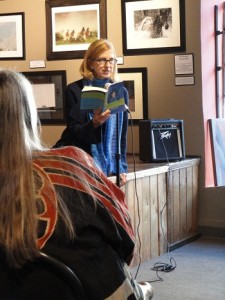Before leaving the subject of my service trip to Guatemala, I’m posting a few more photos of places we went and people we met. The orphanages we visited are privately (not government) run and funded, mainly by donations from individuals and families. Our trip was led by adoptive mom Leceta Chisholm Guibault, founder of “Service Trips to Guatemala with Leceta,” aka “Team Ceta” (top row, far left), and Sandra Hurst (top row, third from left), long-time staffer from sponsor Orphan Resources International (ORI). Several folks have emailed me with questions about my experience. Here’s a sampling, with my answers:
What is a service trip and why did you choose to go on one?
A service trip can be specifically project-based, such as building a house or community center, setting up or working in a medical clinic, installing water filters or stoves, or teaching skills or languages. Over the years, I’ve seen countless teams of volunteers on my flights to Guatemala and I was curious about the phenemenon. I chose to join “Team Ceta” because I have long admired Leceta Guibault’s leadership in the international adoption community.
What did you do on your trip?
Each service trip is different, according to current need. On this sojourn, most of Team Ceta and ORI’s efforts centered on an orphanage, Misioneros del Camino, founded and run by the inspirational Leonor Portelo, a Cuban-born widow who has dedicated her life to helping the children of Guatemala since 1986. Team Ceta volunteers who possess skills in working with children with disabilities and/or speech therapy assisted in the neurological clinic. Others built and installed two bookshelves, and painted the exterior of the dining hall. One volunteer organized and led a Fun Run in which we all participated; others supervised crafts and photography projects. In addition, we hosted activities for the children at Rosa de Amor and My Special Treasure orphanages. There was no shortage of things to do.
Wasn’t it hard on the children for you to interact with them for only a brief time?
I speak a little bit of Spanish, which allowed me to chat with the kids at each of the orphanages we visited and ask their opinions. Perhaps they were only being polite, but every one of them said they liked having us there, that it was something different to do, someone else to talk to; that our conversations were interesting, about a world beyond the orphanage fence. I should emphasize that most volunteers, in general, do not interact with children to the same degree that Team Ceta did on this trip, but focus their efforts on building, painting, or delivering food or health services.
Guatemala can be a dangerous country. Did you feel safe?
Team Ceta and ORI assign volunteers to serve only in areas that are known to be safe for tourists, around Lake Atitlan and Antigua. We traveled by private shuttle or bus, with a bilingual guide.
How were the accommodations? What about the food?
We bunked two to a room in a lovely mission home used by Orphan Resources International called “My Father’s House.” The food was fabulous. In fact, I think this was the first trip I’ve ever taken to Guatemala where I didn’t lose weight.
Would you go on another service trip?
Absolutely yes. The sooner the better! ~
Photo above, top from left: Leceta Chisholm Guibault, Alison Caissie, Sandra Hurst, Dianne Sharpe, Meghan Talbot, Stephanie Finney, Adele Griffith, Jessica O’Dwyer. Bottom row, from left: Robyn Caissie, Kahleah Guibault, Hilary Umbach, Marcia Harvey Talbot, Mary Bain Sebastian. Photograph courtesy Marcia Talbot Photography.
Photos below: Painting the dining hall, young friends, food delivery truck, two children, the new bookshelves, Fun Run, neurological clinic, more young friends, blue door. Dining hall photo courtesy of Adele Griffith. Photos of young friends, Fun Run, and blue door courtesy Mary Bain Sebastian Photography.
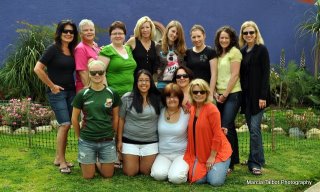
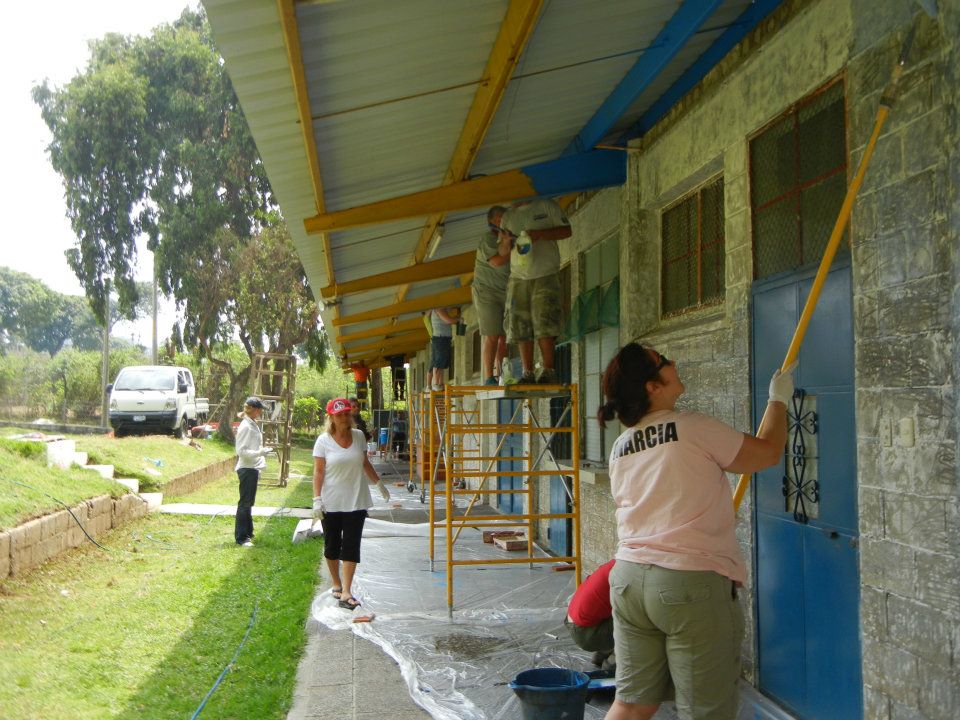
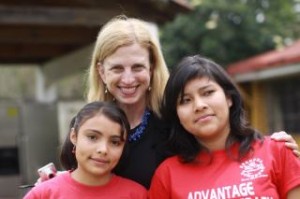
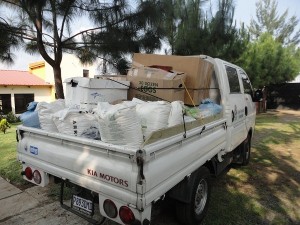
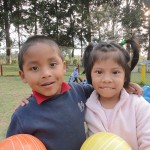
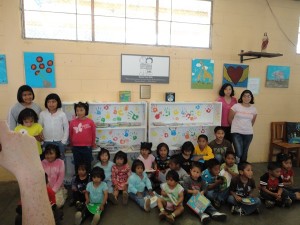
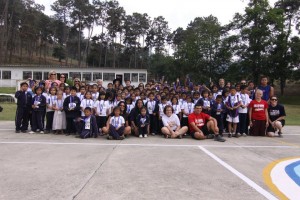
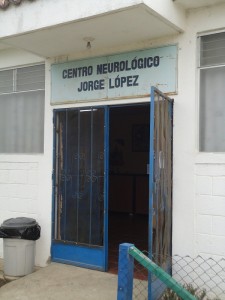
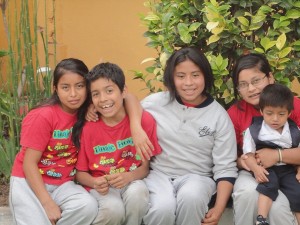
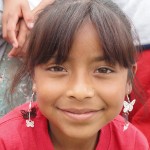
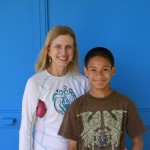



 ShareThis
ShareThis